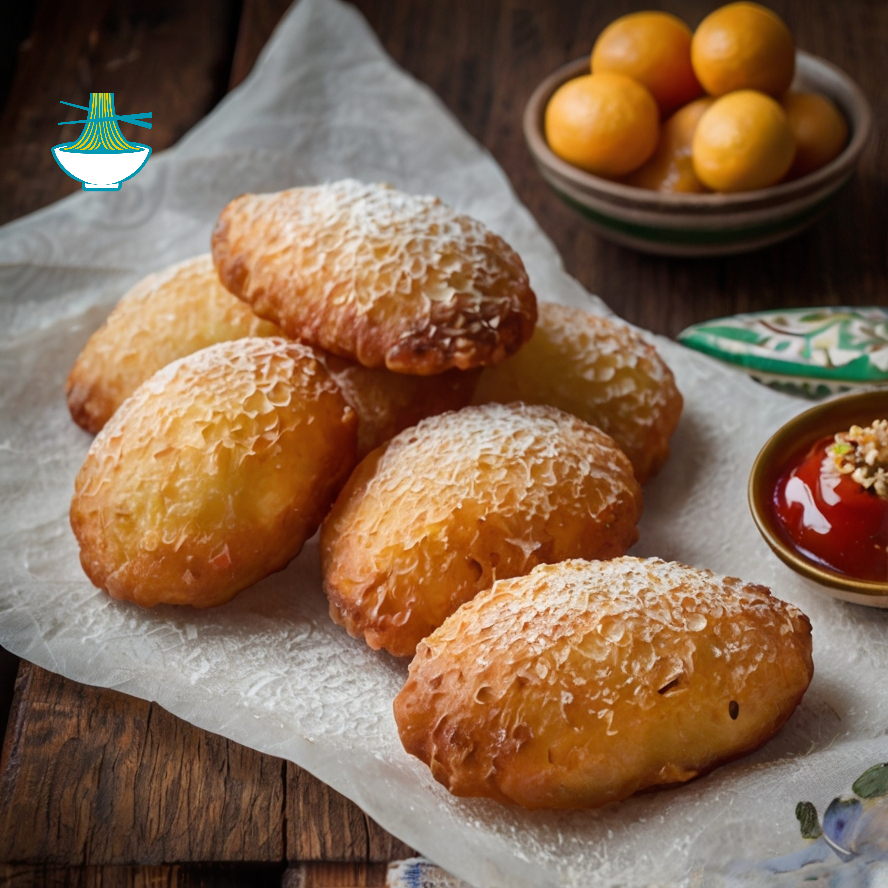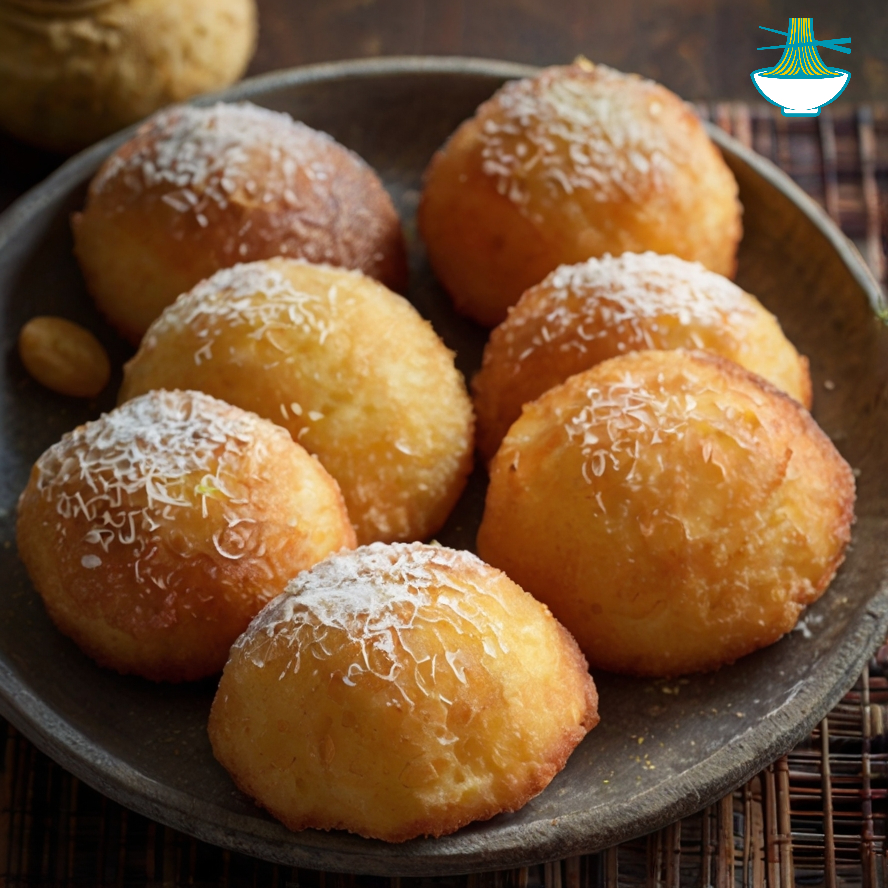Mandazi is a popular snack in Kenya, enjoyed for its sweet and doughy texture. Similar to doughnuts, these fried bread delights are often spiced with coconut milk, cinnamon, and cardamom, giving them a unique and flavorful taste. They are typically served as a snack or breakfast item, perfect with a cup of tea or coffee. Try this traditional Kenyan treat for a delightful culinary experience!
Here's a recipe for Kenyan Mandazi:
Ingredients:
- 2 cups all-purpose flour
- 1/4 cup sugar
- 1 teaspoon baking powder
- 1/4 teaspoon salt
- 1/4 teaspoon ground cinnamon
- 1/4 teaspoon ground cardamom
- 1/4 cup coconut milk
- 1/4 cup water
- 1 egg, beaten
- Oil for frying
Instructions:
1- In a large bowl, mix the flour, sugar, baking powder, salt, cinnamon, and cardamom.
2- In a separate bowl, whisk together the coconut milk, water, and beaten egg.
3- Gradually add the wet ingredients to the dry ingredients, stirring until a soft dough forms.
4- On a floured surface, knead the dough for about 5 minutes, or until smooth.
5- Roll out the dough to about 1/4 inch thickness and cut into triangles or squares.
6- Heat oil in a deep fryer or heavy-bottomed pot to 350°F (175°C).
7- Fry the mandazi in batches until golden brown, about 2-3 minutes per side.
8- Remove from the oil and drain on paper towels.
9- Serve warm as a snack or breakfast item.
Enjoy your Kenyan Mandazi!
Nutritional Values:
Here are approximate nutritional values for the ingredients used in the Kenyan Mandazi recipe per serving:
2 Cups All-Purpose Flour:
- Calories: 910 kcal
- Fat: 2.4 g
- Carbohydrates: 190 g
- Protein: 26 g
Benefits: Provides essential carbohydrates for energy and some protein. Flour is a key ingredient in baking, creating structure in dough or batter.
1/4 Cup Sugar:
- Calories: 200 kcal
- Fat: 0 g
- Carbohydrates: 50 g
- Protein: 0 g
Benefits: Adds sweetness to the dough. Use in moderation to manage calorie and sugar intake.
1 Teaspoon Baking Powder:
- Calories: 2 kcal
- Fat: 0 g
- Carbohydrates: 1 g
- Protein: 0 g
Benefits: Helps the dough rise by creating carbon dioxide gas during baking. Essential for achieving a light, fluffy texture in baked goods.
1/4 Teaspoon Salt:
- Calories: Negligible
- Fat: 0 g
- Carbohydrates: 0 g
- Protein: 0 g
Benefits: Enhances flavor and balances sweetness. Use in moderation to control sodium intake.
1/4 Teaspoon Ground Cinnamon:
- Calories: 2 kcal
- Fat: 0 g
- Carbohydrates: 0.6 g
- Protein: 0 g
Benefits: Contains antioxidants and anti-inflammatory compounds. Adds flavor and aroma.
1/4 Teaspoon Ground Cardamom:
- Calories: 3 kcal
- Fat: 0.1 g
- Carbohydrates: 0.7 g
- Protein: 0.1 g
Benefits: Provides antioxidants and supports digestion. Adds a warm, aromatic flavor.
1/4 Cup Coconut Milk:
- Calories: 45 kcal
- Fat: 4 g
- Carbohydrates: 1 g
- Protein: 0.5 g
Benefits: Adds flavor and richness. Provides medium-chain triglycerides (MCTs), which may offer various health benefits.
1/4 Cup Water:
- Calories: 0 kcal
- Fat: 0 g
- Carbohydrates: 0 g
- Protein: 0 g
Benefits: Hydrates the dough mixture, helping to achieve the right consistency.
1 Egg, Beaten:
- Calories: 70 kcal
- Fat: 5 g
- Carbohydrates: 0.6 g
- Protein: 6 g
Benefits: Provides protein, vitamins, and minerals. Helps bind the ingredients together and adds richness to the dough.
Oil for Frying:
- Calories: 120 kcal per tablespoon
- Fat: 14 g
- Carbohydrates: 0 g
- Protein: 0 g
Benefits: Adds crispiness and richness. Choose a healthy oil and use in moderation to manage calorie and fat intake.
Keep in mind that these values are approximate and may vary based on factors such as brand, specific ingredients used, and method of preparation.


Comments